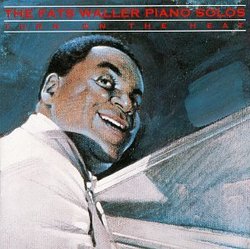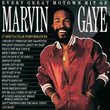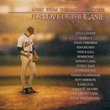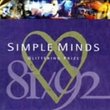| All Artists: Fats Waller Title: Turn on the Heat: Fats Waller Piano Solos Members Wishing: 0 Total Copies: 0 Label: RCA Release Date: 4/9/1991 Genres: Jazz, Pop Styles: Swing Jazz, Traditional Jazz & Ragtime, Jive Jazz Number of Discs: 2 SwapaCD Credits: 2 UPCs: 078635248227, 078635248241 |
Search - Fats Waller :: Turn on the Heat: Fats Waller Piano Solos
 | Fats Waller Turn on the Heat: Fats Waller Piano Solos Genres: Jazz, Pop
|
Larger Image |
CD DetailsSimilarly Requested CDs
|
CD ReviewsTurn it on antcol83 | New York City, New York United States | 04/30/2004 (5 out of 5 stars) "It's all here...gospel feeling, the whiff of the cocktail (lounge), artistry, entertainment and the finest combination of creativity and technique in the history of Stride Piano. If Johnson and Willie the Lion are unquestionably deeper, more searching artists, Waller is the most consistent. Highpoints for me are mostly on the second disc - aficionados, go there first! ( but skip those duets - tracks 4 and 5 - trivia!). Alligator Crawl is a manneristic masterpiece, possessing ( besides "the secret of joy" ) l'air de rien...you try playing it. Those hints of Boogie - Woogie certainly bring to mind Waller's cited distain for that idiom...he only uses it as a jumping off point. If you're feelin' nerdy, try following Keepin' Out of Mischief Now with Andre Hodier's analysis in the groundbreaking book Jazz, Its Evolution and Essence. Anyway, all of the 1937 solos are definitive. For all the great music Waller recorded, it's criminal that there are only 3 solo sessions between 1934 and his death in 1943! Carolina Shout (the originally issued, better take) is more technically assured than any of the composer James P. Johnson's versions...ah, i could go on and on...Just one thing, though - ( a cavil ): mastering is better than earlier reissues on Bluebird, but it ain't all that...those of you who have never experienced a John R. T. Davies or Lionel Risler or Steven Lasker remastering job need to check them out!" Accept substitutes Keith | Silver Spring, MD United States | 05/14/2006 (5 out of 5 stars) "This disc has been deleted by RCA, and $41.97 is currently the low price asked by sellers of used copies, but the same tunes are available on Jazz Archives' "Piano Masterworks, Vols. 1 & 2" at about half that price." One of the greatest jazz pianists in history! Bob Martinez | Brooksville, FL USA | 10/05/2000 (5 out of 5 stars) "Waller was underappreciated as a jazz pianist in his day. He was usually clowing around and the emphasis was placed more on his singing. These cuts show off his instrumental prowess and it is awesome! His playing swung delicately and intricately. He also displayed a poignant harmonic beauty to all his works. It's like trying to describe a beautiful sunset or sunrise to someone who's never seen one. You have to experience Fats' playing to truly understand it's beauty. It's easy on the nerves. Ideal for driving through the road rage of life! One CD I'll always cherish. All his classic solos (1929-1937) are here for the ages!"
|

 Track Listings (20) - Disc #1
Track Listings (20) - Disc #1






